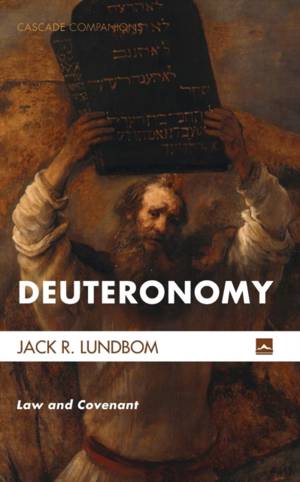
- Afhalen na 1 uur in een winkel met voorraad
- Gratis thuislevering in België vanaf € 30
- Ruim aanbod met 7 miljoen producten
- Afhalen na 1 uur in een winkel met voorraad
- Gratis thuislevering in België vanaf € 30
- Ruim aanbod met 7 miljoen producten
Zoeken
€ 46,45
+ 92 punten
Uitvoering
Omschrijving
This book on Deuteronomy seeks to place before a broad audience of students and lay readers one of the important books among the first five books (together called the Pentateuch) in the Hebrew Bible or Old Testament. It lifts up major themes in the book, one of the most prominent being Moses as prophet par excellence. Deuteronomy is the Old Testament's major book on law and covenant, re-presenting the Ten Commandments given to Israel at Mount Horeb (also known as Sinai). But the book is more concerned to present the Deuteronomic Code (in chapters 12-26) taught to Israel in the plains of Moab, just before Moses dies and Israel is to cross the Jordan River into Canaan. The writer of Deuteronomy is not Moses, as stated in the Jewish Talmud, but most likely a Levitical priest in the late eighth or early seventh century BC who assumes the persona of Moses in Judahite worship. Two old poems, the Song of Moses (32:1-43) and the Blessing of Moses (chapter 33), appear in a final supplement to the book, which then closes with an account of Moses's death and burial in Moab.
Specificaties
Betrokkenen
- Auteur(s):
- Uitgeverij:
Inhoud
- Aantal bladzijden:
- 228
- Taal:
- Engels
- Reeks:
- Reeksnummer:
- nr. 35
Eigenschappen
- Productcode (EAN):
- 9781532603709
- Verschijningsdatum:
- 8/03/2017
- Uitvoering:
- Paperback
- Formaat:
- Trade paperback (VS)
- Afmetingen:
- 127 mm x 203 mm
- Gewicht:
- 226 g

Alleen bij Standaard Boekhandel
+ 92 punten op je klantenkaart van Standaard Boekhandel
Beoordelingen
We publiceren alleen reviews die voldoen aan de voorwaarden voor reviews. Bekijk onze voorwaarden voor reviews.











